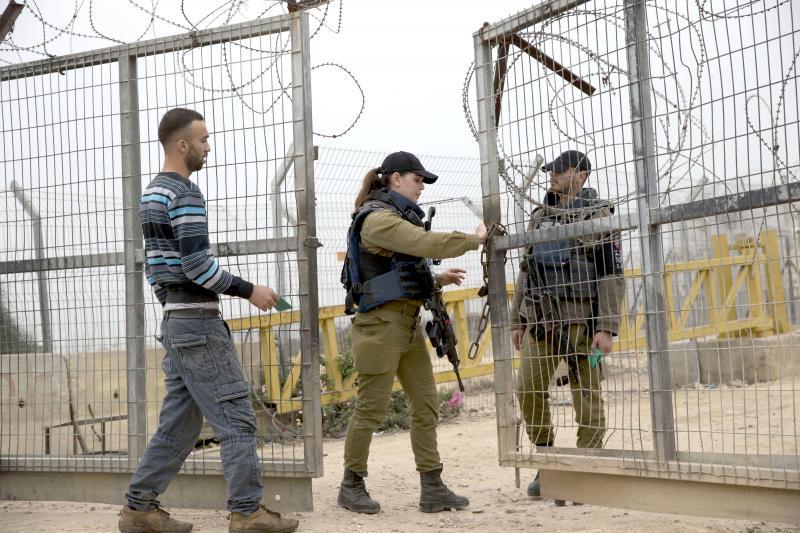Israel’s unchecked brutality shows that Palestinians are alone
World leaders’ statements condemning Israel’s latest round of violence against Palestinian civilians have been telling. Some leaders voiced tepid rebukes; others issued bold statements of denunciation, but none took determining action that could change the course of the conflict. Rhetorical condemnation and symbolic moves, however daring, are insufficient if not followed by action.
The problem cuts deeper than the bloody events of May 14 or the opening of the US embassy in Jerusalem. It is about the cruelty of the decades-long occupation of Palestinian territories, which must end once and for all. It is also about the continuing violence perpetrated by the Israeli occupation. It is about checkpoints, settlements, separation walls, discrimination, restrictions on al-Aqsa worshippers, a blockade on Gaza and much more. It is about Washington’s complicity, which has allowed Israel to continue on its course.
Over the past decades, the United States has not only provided diplomatic cover to Israel at the United Nations but supplied it with most of its weapons and military hardware. Since 1972, the US has used its veto power to shoot down more than 40 resolutions critical of Israel at the UN Security Council while simultaneously providing Israel with large quantities of foreign aid. In fact, “Israel is the largest cumulative recipient of US foreign assistance since World War II,” to the tune of $134 billion, according to a recent report from the Congressional Research Service.
The world’s unwillingness to act against the Israeli occupation and Washington’s complicity is clear to all. While some leaders resorted to symbolic moves like recalling ambassadors and others voiced concern about further instability or another uprising, the root of the tragedy in the Palestinian territories — the violent occupation — remains unaddressed.
Most leaders across the globe proclaimed that Israel’s latest violent response to Palestinian protests would bring an end to stability. However, the truth is that there has been neither peace nor stability in the Palestinian territories since the start of the Israeli occupation.
This hypocritical discourse shows that Palestinians have once again found themselves alone, forced to cope with an increasingly complicated conflict while dealing with a domestic political scene marred by factional rivalry, security collaboration with Israeli intelligence and a sequence of concessions to the Israeli side.
A burst of violence in the occupied Palestinian territories is not unusual. It has, unfortunately, happened on several occasions since 1948. What is unique about this round of violence, however, is the scope of the tragedy: More than 60 Palestinians were killed in one day while Washington stood silent, apathetic and complicit.
The contrast between the celebratory opening of the US’s new embassy in Jerusalem and the bloodied bodies of Palestinian protesters in Gaza was jarring. Not only did it reflect the extent of Palestinians’ oppression but it showed the appalling indifference to human life exhibited by Washington, Tel Aviv and, to a lesser extent, the international community.
Washington ironically hailed the ceremony in Jerusalem as overdue and as a step towards peace. Its officials in Jerusalem made no mention of the bloodshed about 96km away in Gaza.
Only a few US politicians broke ranks to condemn Israel’s excessive violence.
“Hamas violence does not justify Israel firing on unarmed protesters,” said US Senator Bernie Sanders, a Vermont Democrat.
“It’s just heartbreaking,” said Senator Dianne Feinstein, a Democrat from California. “The humanitarian situation in Gaza is desperate.”
The violence on May 14 also shed light on growing inequality across the world.
On social media, we see pictures of poor Palestinians crossing kilometres on foot to reach a hospital, contrasted with photos of rich men struggling to choose between a Ferrari and a Lamborghini. Images of excited children going to Disneyland for the first time on their birthday are seen next to the image of a child whose body has washed up on a Turkish beach.
The sense of injustice that such disparities evoke can be a powerful form of motivation for people to take action, not only in defence of themselves but in defence of others. It should come as no surprise, then, if some people resort to violence, condemnable though it is, to avenge the Palestinian people and shake the world out of its apathy.
Today, the Palestinian plight has become a global symbol of injustice, apathy and amnesia. While governments and leaders across the globe remain idle, other people who have seen their rights violated, their chances of securing a decent life undermined and their dreams of prosperity and peace dashed risk taking matters into their own hands.
The world’s persistent indifference to the Palestinian plight could open up a Pandora’s box, unleashing violence in the Palestinian territories and elsewhere in the Middle East. Extremists will do their best to make this happen, with the hope of creating a vacuum they can fill.
It is also worth noting that the US and Israel’s oppressive policies towards Palestinians have long served as a driving force of recruitment for jihadist groups. Al-Qaeda founder Osama bin Laden even cited Washington’s support for Israel as one of the terror group’s primary reasons for “fighting and opposing” the United States.
This article was originally published in The Arab Weekly.







